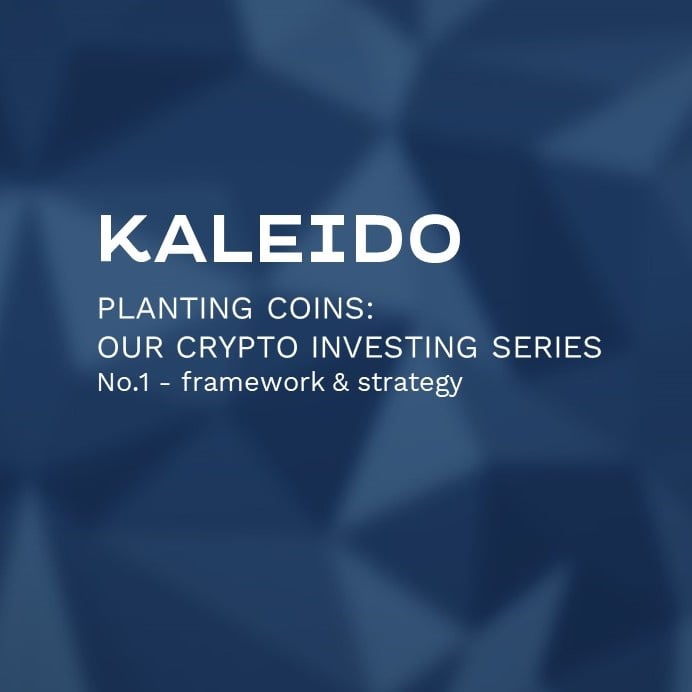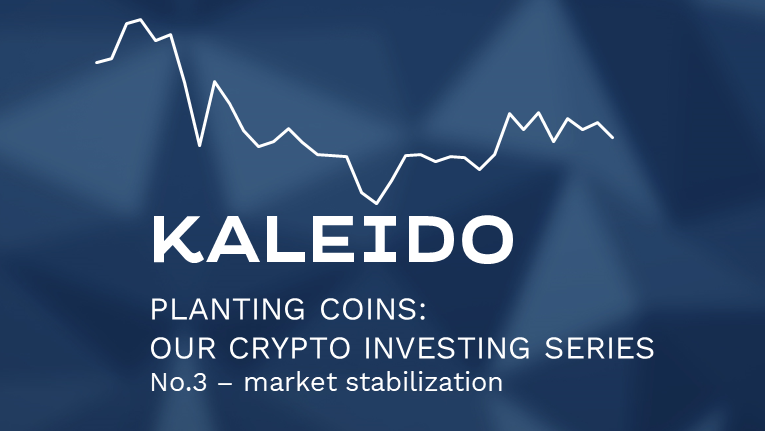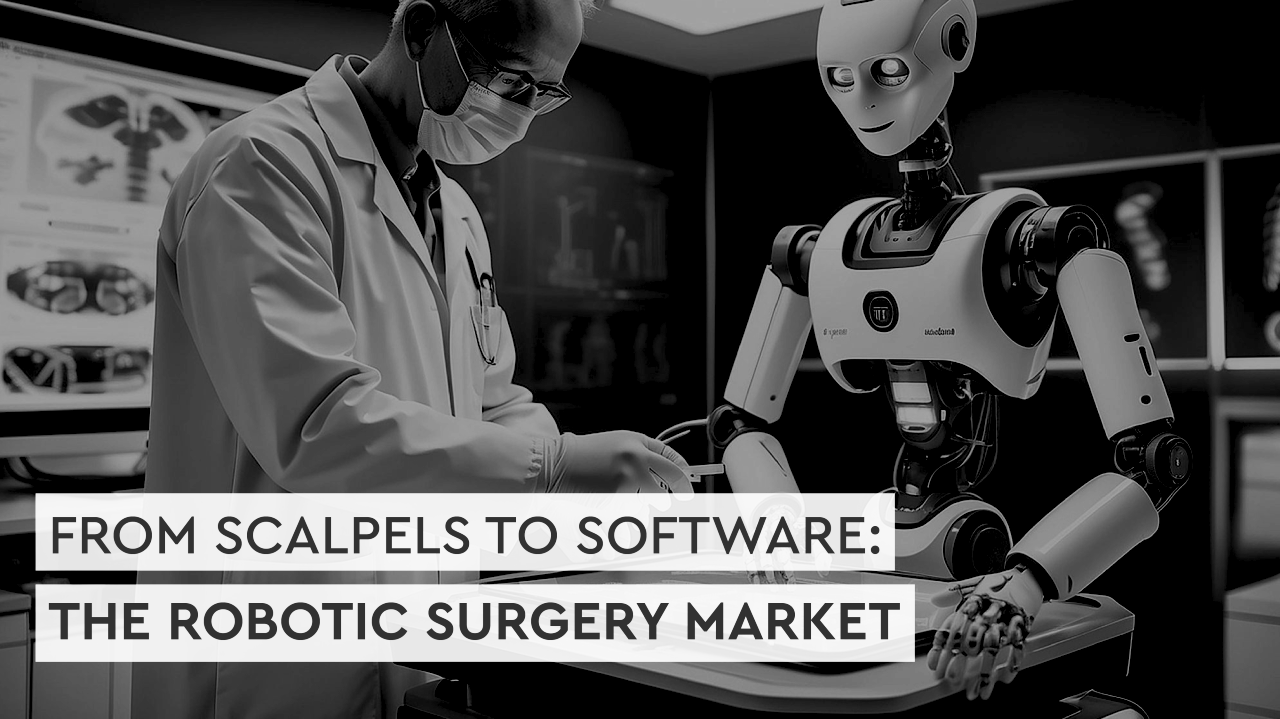Planting Coins: Our investing series - framework & strategy
We are in the midst of a crypto winter, and it is not the first since the launch of Bitcoin in 2008. Blockchain technology has been the talk of the...
Please click on the blue "+" sign to open the full menu.
We have the right products for you, for a secure future.
We provide you with the right advice, to be future-proof.
It all starts with a friendly conversation. Just contact us.
Longevity is emerging as a crucial dimension in health care. This dimension goes beyond the traditional understanding and medical practices in the sector, to embrace a more holistic approach that nurtures the mind, body, and soul.
At its core, longevity is all about enhancing our healthspan, as well as our lifespan. Put in other words, it's about enhancing the time we enjoy good health and increasing the total number of years we live. The ultimate goal is to synchronize our healthspan with our lifespan, ensuring that we both live longer and live better - rich in years, health and well-being.
The medical aspect of longevity (aka longevity medicine) is a rapidly growing field in healthcare. This type of medicine focuses on addressing the universal phenomenon of aging through preventative healthcare.
Preventative healthcare shifts the focus from reactive to proactive healthcare. This is achieved by leveraging advancements in genomics, biotechnology, and precision medicine. The role of proactive longevity medicine is crucial in addressing the root causes of chronic age-related diseases such as heart disease, cancer, and neurodegenerative diseases by directly targeting the biology of aging and promoting a holistic healthcare model.
In this context, artificial intelligence (AI) plays a pivotal role by analyzing complex datasets, recognizing hidden patterns, and uncovering the mechanisms of aging, leading to new biomarkers, accelerating drug discovery and development, and providing insights into behaviors.
AI's impact on healthcare also extends to personalized medicine. By analyzing our individual genetics and lifestyle, AI can provide us with personally tailored health strategies. As if that was not exciting enough, AI can also enhance disease prevention and the early detection of disease, as well as contribute to telemedicine and digital health, to improve patient care and self-care.
Overall, advancements in AI represent an important paradigm shift, driving a more proactive, personalized, and preventive approach to aging and health.
AI is revolutionizing longevity research through analyzing complex aging-related data, particularly so-called multi-omics data, which includes:
AI's ability to simplify and interpret such complex aging-related data leads to completely new insights into the aging process, contributing to innovative treatments and prevention methods for age-related diseases.
The information theory of aging, which views aging as a loss of epigenetic information (i.e., the instruction manual for cells to function properly), utilizes AI to understand and potentially reverse these changes, evident in areas like stem cell reprogramming, where AI has been instrumental in identifying pathways to restore youthful characteristics in cells.

Today, several companies are leveraging AI to revolutionize the drug discovery process. One example of this is Insilico Medicine, who has significantly reduced the time it takes to progress to Phase 1 of clinical trials, to potentially as few as four years. This really is a remarkable shift, as traditional approaches for bringing a new drug to market is conservatively estimated the take at least a decade and an investment of at $1 billion or more.
Another example of AI in healthcare is the recent collaboration between Fauna Bio and the giant pharma company Lilly. Together, they have researched the unique biology of the leopard ground squirrel, which is known for its extreme weight fluctuations and resistance to obesity-related ailments. This has helped them identify new therapeutic targets for obesity. Through Fauna Bio's Convergence™ AI Platform they analyze complex multi-omics data, which enables them to rapidly pinpoint potential treatments. This partnership is a great example of what can happen when advanced AI technology is fused with innovative biological research. This collaboration marks a significant advancement in obesity therapeutics that extends far beyond weight loss and into the prevention of diabetes, cardiovascular disease, and potentially even neurodegenerative disease.
Other companies, like Samsara Therapeutics and ImmuneAGE Bio, are also significantly contributing to the field. Samsara Therapeutics is focused on improving autophagy, which is a cellular process that can be boosted by fasting and exercise, to promote healthy aging. Meanwhile, ImmuneAGE Bio is working on rejuvenating hematopoietic stem cells and other immune cell types like T cells (Hematopoietic stem cells are like master cells in our bone marrow that can turn into any type of blood cell needed, like red and white blood cells, keeping our blood healthy and functional). Their approach is to mobilize these cells from the bone marrow, expanding their numbers, and then finding molecule cocktails that rejuvenate these cells before reintroducing them into the bloodstream.
These are just a few examples of the efforts that some companies are currently making to merge AI with innovative biotechnologies, and they truly highlight the potential that exists in this exciting intersection.
Other areas where AI is making important contributions to longevity are in precision medicine and machine learning. In precision medicine, AI is used to develop individualized treatments based on a person's genetic makeup, enhancing the efficacy of gene and cell therapies. Another area where AI is making an important difference is in the application of machine learning to biomarkers and drug discovery. Here AI helps in the early detection and pre-emptive treatment of age-related diseases by analyzing health data from wearable devices and sensors. This data, which includes vital signs and biomarkers, is used to create personalized insights and inform preventative health decisions conveniently delivered via apps and software.
The longevity market is projected to reach trillions of dollars. This growth is driven by an increasing focus on health and an aging global population. AI's role in analyzing extensive biomedical and patient data opens up numerous investment opportunities in AI-driven diagnostics, therapeutics, and personalized medicine solutions.
We are currently seeing companies establishing AI expertise in-house, acquiring AI-driven biotech companies, and forming partnerships to co-develop drug candidates and AI-infused services. Notable examples are:
These strategic corporate moves show a robust and growing interest in AI-driven solutions in the longevity market, clearly signaling promising investment opportunities in this field.
The biopharma industry is experiencing a significant shift with small and agile biotech companies emerging as central to innovation in longevity and AI.
These companies, including new entities known as Distributed Drug Discovery Companies (DisCos), act as incubators for new ideas and technologies, attracting significant investments and partnerships with larger pharmaceutical companies. DisCos represent a network of subsidiary companies, where each is working on distinct drug discovery projects. This model provides better diversification and increased capital efficiency compared to traditional pharma models. They are early R&D-focused, leveraging the highest value inflection points before clinical development.
DisCos like Cambrian Bio and Juvenescence are setting the pace in the longevity biotech space, contributing uniquely to combating aging-related issues with diverse approaches. These companies form part of a diversified portfolio under a DisCo structure, which offers resilience and flexibility, allowing teams to regroup and pivot if individual projects fail. This adaptability is less common in big pharma structures, where failed projects might mean the end of the line.
In conclusion, the synergy of AI and longevity research holds the key to a healthcare revolution that prioritizes proactive, personalized, and preventive care. By using the power of AI to decode the complexities of aging, we stand on the cusp of transformative breakthroughs in drug discovery and disease prevention.
As investment and innovation converge at the intersection of health and technology, the future of longevity holds the prospect of not only longer lifespans but more importantly richer healthspans. This means we might enter an era where aging is not met with apprehension but instead navigated with precision and insight.
As we invest in this bold new domain, we are not simply betting on the extension of years but on the quality of life itself, ensuring that the advancements in longevity become more accessible, effective, and benevolent for all.
Disclaimer: This piece of information is for marketing and entertainment purposes only and should not be taken as an investment recommendation. Remember that all investments involve risk. Please read our full Marketing Disclaimer here.

We are in the midst of a crypto winter, and it is not the first since the launch of Bitcoin in 2008. Blockchain technology has been the talk of the...

2 min read
Management Summary Today's focus is on various portfolio construction strategies: lump-sum investment, market timing, staggered, or Dollar Cost...

Investorseyeing theglobal surgical robotics marketshould take a closer look, as this market is expected to experience significant growth in the years...